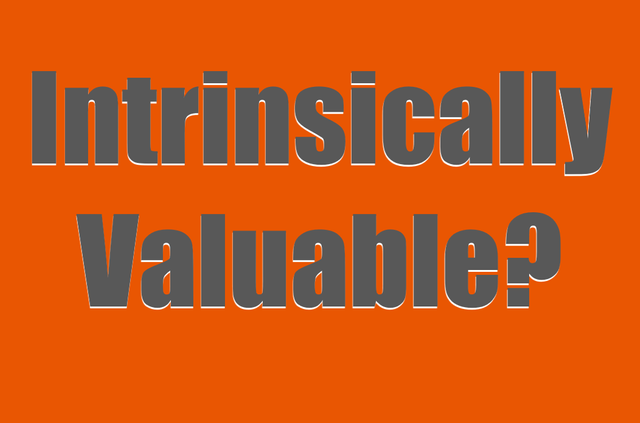Can A Blockchain Really Have "Intrinsic Value"?

Can a blockchain have intrinsic value? For an asset to have intrinsic value it has to have an underlying value that exists before "means of exchange" and serves as a base value. This is what your standard Austrian economics supporter believes and its what history suggests.
That base value comes from utility of some kind, which acts as the foundation of its worth that means of exchange usage and speculation can add on top of in a market.
Bitcoin is a network and can benefit from network growth. However, network value can be fleeting and is not reliable for an indication of its value. Network popularity comes and goes, as we see with Myspace, AOL and many other projects. Anyone rocking JUNO internet service? Not for years...
Bitcoin has no intrinsic value because its first and foremost use case is as a means of exchange, the same as a fiat currency. Like fiat currencies, BTC, BCH, LTC are used for one thing and one thing only: means of exchange.
How do these cryptocurrencies become a means of exchange? Social consensus and really nothing more. They are not "representative" assets/money because they are not backed by a real asset such as gold, oil, Nike shoes, and they can't actually satisfy a need other than means of exchange.
What about Monero, Zcash, or another privacy coin? Well, you can actually say that privacy is the fundamental value necessary to some intrinsic value. For example, let's say you kept your wealth in Bitcoin but one day you want to make a private transaction and so you exchange BTC for XMR. In this case the value doesn't come from the coin but from the network, yet you need XMR to use the network for privacy.
Ethereum was one of the very first blockchains with what one could call "intrinsic value" because its native currency actually served a purpose beyond simply securing itself. Ether is the fuel that is used by any businesses and users of decentralized applications and DeFi within its ecosystem in order to obtain security and autonomous computation. In this way, Ethereum is sort of a Security As A Service, which is not true of Bitcoin simply because Bitcoin truly only secures bitcoins, and not whatever other asset you care about.
This does not mean that cryptocurrencies that were designed only to be a means of exchange cannot succeed at being a globally recognized currency. The world is full of assets that have value simply because people think that they do. A perfect example of this is video games, where digital assets within a video game have gone for very large sums.
However, when I look at a cryptocurrency that I might want to own, one thing I look for is that intrinsic value. Some people will claim there is no such thing as intrinsic value, and I disagree. At least, our definitions would not be aligned, because if an asset has a fundamental use that has clear and consistent demand, I consider that intrinsic value.
Does something having intrinsic value mean it is worth a lot? Not necessarily. One of my arguments for the concept of intrinsic value utilizes the examples of water and air. We need water and air to live. These two things are not expensive, one is even free, but they have intrinsic value because we really need them.
In my eyes, even though an asset has intrinsic value it does not help us know its exact value. This is because assets are often priced above that base value. Still, if you were to buy something a good question to ask yourself is:
If the market price of that asset goes below my purchase price, can I still use it?
So, can a blockchain have intrinsic value? It can! Still, that does not tell us how valuable its intrinsic value really is...